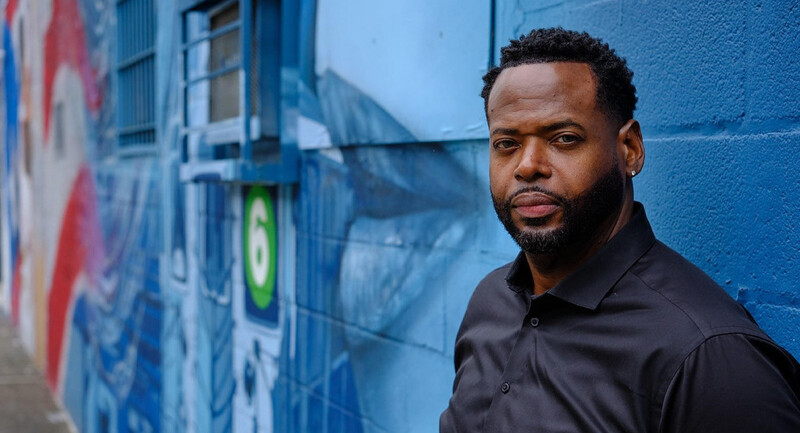“Leading through empathy sounds wonderful,” the principal said to me, “but how do you do this while also being a good supervisor?” She was attending a workshop based on my book, The Principal as Chief Empathy Officer (ASCD, 2022), and her question inspired me to reflect on the pressures that cause tension between the need to give strong and directive supervision and the desire to tune in to the feelings of those we supervise—and whether those pressures have made empathy even scarcer these days.
Stanford psychology professor Jamil Zaki, author of The War for Kindness (Crown, 2020), says that our collective empathy has dwindled steadily over the 21st century. According to research, notes Zaki, “the average American in 2009 was less empathic than 75 percent of Americans just 30 years before.” Yet this decline isn’t going unnoticed: Empathy has taken center stage over the past few years, with calls for more of it in politics and business.
In schools, the pandemic has led to an increased need for empathy. Test scores indicate that students’ academic progress suffered during COVID-19, but educators have told me that students’ social-emotional growth has suffered even more. But these setbacks aren’t limited to students. I hear comments from both principals and teachers about how difficult it is for some adults to be back in school. The pandemic-related lockdowns, social distancing, and stress have taken an emotional toll on all of us. The pandemic’s vestiges remain a concern. No, we are no longer wearing masks (although it's totally fine if you are), but things aren’t back to normal yet. So, for sure, more empathy is needed—for both others and ourselves—than was the case in March 2019.
The Empathic Supervisor
Being an empathic supervisor can be challenging, but it’s part of the job. First, we must work to cultivate empathy within our staff, including those who work in maintenance, the cafeteria, and security. The good news, as Zaki says in his TED Talk, is that “empathy is a skill.” It can be taught and learned. We learn empathy by working to understand how our colleagues think, perceive, and feel. It’s not enough to understand their positions on certain issues; rather, we need to understand their rationale behind these positions. Developing empathy happens when we go beyond casual hearing and seeing; it takes place when we consciously listen and observe.
Empathy can happen when we create both formal and informal opportunities to learn from others. For example, we may routinely use surveys or make a point of being visible and seemingly relaxed in the school hallways and staff lounge to encourage people to chat with us. While it’s difficult to not look busy when you have too much to do, you’ll be more approachable if you’re not distracted. I have learned some invaluable things during these brief conversations.
To maintain a positive empathy trajectory, it’s not enough to be aware of our colleagues’ thinking and feeling—we need to act. That may involve simply showing respect by explaining why you cannot do something, such as listening and showing concern but holding firm to school guidelines on cold-weather outdoor recess. This is part of good supervision.
“In fact,” as I replied to the principal at my workshop, “leadership stems from relationships, and a principal’s empathy will encourage and strengthen [relationships].” Being empathic makes it easier to be a good supervisor. A good principal wants their teachers to succeed, and the more supervisors know not just their teachers’ pedagogical strengths and weaknesses, but their perceptions and values, the easier it will be to establish rapport.
Empathy can happen when we create both formal and informal opportunities to learn from others.
Good Leadership = Empathic Leadership
In my postgraduate classes and educator workshops, I ask teachers to write an adjective or two that describes a principal they respect and who has helped them grow. Not surprisingly, teachers’ responses fall into three categories: instructional leadership, managerial skills, and interpersonal relationships. What is surprising is that the ability to build interpersonal relationships is by far the most frequently cited quality in a good leader.
The characteristics tied to caring and empathy are listed far more frequently in the workshop—seven to 10 times more often—than are instructional or organizational leadership characteristics. In other words, the principal’s relationship with the teacher matters most. Some adjectives I’ve seen teachers list about respected leaders include patient, welcoming, validating, inclusive, kind, accepting, people smart, caring, supportive, hopeful, great listener, and a cheerleader. Teachers also describe these principals as “an intent listener” and “someone who is cheering you on.” One respondent said the leader she respects is “someone who knows how to listen effectively,” and that “everyone knows he cares and that makes them want to work with and for him.” These principals’ empathy enabled them to really know and understand their teachers. But it didn’t detract from their ability to help their teachers grow. In fact, empathy had the opposite effect: it inspired these teachers to want to stretch themselves and work even harder.
Supervision isn’t easy. None of us are perfect, and we all fall short at times. When that happens, however, responding with empathy will help us better understand, support, and encourage our teachers. In turn, they might just pursue greater growth.
The Principal as Chief Empathy Officer
A principal's skills, knowledge, and experience are important when it comes to leading schools. But principals also need empathy to be effective and drive continuous improvement.






